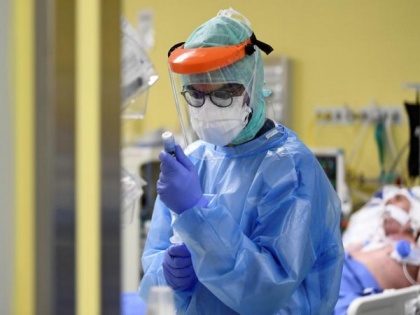Failure of 'reverse quarantine' lead to 61 deaths due to COVID-19 in Kerala: Report
By ANI | Published: October 26, 2020 02:27 PM2020-10-26T14:27:33+5:302020-10-26T14:40:08+5:30
An audit for August and the first week of September by the Kerala Government revealed that failure of "reverse quarantine" (home quarantine) had led to 61 COVID-19 deaths.

Failure of 'reverse quarantine' lead to 61 deaths due to COVID-19 in Kerala: Report
An audit for August and the first week of September by the Kerala Government revealed that failure of "reverse quarantine" (home quarantine) had led to 61 COVID-19 deaths.
"Failure of reverse quarantine was observed in 61 (24 per cent) of COVID-19 deaths. Mortality may be prevented by vigilant observation of reverse quarantine,'' said the report, prepared by the Death Audit Committee of Kerala's Health Department.
The department had warned that people over the age of 60 and those with other serious illnesses should stay in quarantine at home (reverse quarantine). Under reverse quarantine, people having underlying medical conditions, especially those above 60 years and persons who are immune-compromised are segregated from other family members.
Of the 252 deaths reported at government hospitals in the state, 223 or 88.5 per cent of the total, were due to COVID-19, it said.
The comorbidities such as hypertension and diabetes, coronary artery disease, chronic kidney disease and cancer are established determinants of mortality in COVID-19 cases. A similar pattern was also observed in the audit.
As per the audit committee, among the COVID-19 victims, 116 had hypertension, 120 had diabetes and 15 had cancer. Hospitals reported 13 (5 per cent) 'brought dead' cases. Five bedridden patients had succumbed to COVID-19. There were 20 deaths where the underlying cause was not COVID-19, while nine were kept pending for more clinical details.
According to the audit report, the mean age of the COVID-19 deaths was 63.5 years with a standard deviation of 13.1.
The minimum age of death was 7 months and the maximum age was 97 years. Age is an established determinant of COVID-19 mortality. The chance of death due to COVID-19 is likely to be higher as age increases, the report said.
The report also finds that majority of the patients who died due to COVID-19 were men. There were more deaths among males (66-157). This pattern is similar to the one observed worldwide.
A total of 223 deaths were classified as to have the underlying cause of death as COVID-19.
It suggested that dialysis centres, oncology wards and cancer-care centres, which provide care to high-risk patients and severely morbid patients, should ensure strict infection, prevention and control (IPC).
The committee recommended that the importance of reverse quarantine be re-emphasised and the practice monitored using grassroots-level workers. Vulnerable persons, even if mildly symptomatic, should be tested for COVID-19. Antigen testing may be increased to improve surveillance. Contact tracing, testing and treatment should be followed, it said.
Symptom surveillance should be strengthened in these households. These persons may be motivated to monitor oxygen saturation so as to enable early detection of signs and complications and prompt health-seeking, the report said.
( With inputs from ANI )
Disclaimer: This post has been auto-published from an agency feed without any modifications to the text and has not been reviewed by an editor
Open in app